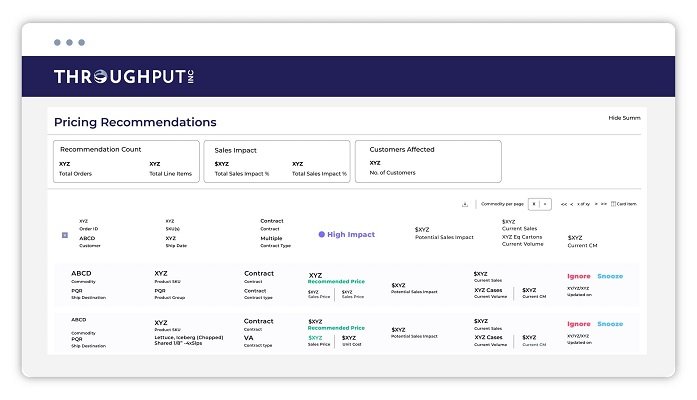The rise of AI in supply chain has transformed the way businesses manage logistics, inventory, and distribution. Companies are now leveraging artificial intelligence to optimize operations, reduce costs, and deliver faster services. With Throughput Inc at the forefront, organizations are reaping the benefits of AI-driven supply chain solutions.
The Role of AI in Supply Chain Management
Artificial intelligence enhances every stage of the supply chain. From demand forecasting to warehouse management, AI systems analyze large datasets to generate actionable insights. This allows businesses to anticipate changes, avoid disruptions, and maintain consistent product flow.
For instance, AI-powered predictive analytics can identify patterns in customer behavior, enabling companies to stock the right products at the right time. Throughput Inc employs advanced AI algorithms to ensure clients’ supply chains operate with maximum efficiency.
Optimizing Inventory with AI
Inventory management is one of the most critical areas in supply chain operations. Traditional methods often rely on historical data, leading to overstocking or stockouts. Integrating AI in supply chain processes helps businesses maintain optimal inventory levels.
Machine learning models can predict demand fluctuations and adjust inventory automatically. This reduces waste, minimizes storage costs, and ensures products are available when needed. Throughput Inc’s AI-driven solutions provide real-time inventory tracking and automated replenishment, making supply chain operations smarter and more agile.
Enhancing Logistics and Distribution
Logistics and distribution are complex processes requiring precise coordination. AI technologies such as route optimization, autonomous vehicles, and smart scheduling improve delivery efficiency. By analyzing traffic patterns, weather conditions, and order priorities, AI ensures timely and cost-effective deliveries.
Throughput Inc leverages AI to optimize logistics routes, reduce fuel consumption, and improve delivery reliability. Companies adopting these solutions experience faster shipments, lower operational costs, and better customer satisfaction.
Reducing Supply Chain Risks with AI
Supply chains are vulnerable to disruptions caused by market fluctuations, supplier delays, or unexpected events. AI in supply chain management provides predictive risk assessment to mitigate these challenges.
By analyzing historical data and real-time information, AI systems can anticipate potential risks and suggest contingency plans. Throughput Inc incorporates AI-based risk management to help businesses respond proactively, reducing downtime and maintaining continuity in operations.
AI-Driven Demand Forecasting
Accurate demand forecasting is essential for efficient supply chain management. AI algorithms process large volumes of historical and real-time data to generate precise forecasts. This enables companies to plan production schedules, allocate resources, and manage inventory effectively.
Throughput Inc’s AI solutions provide dynamic forecasting models that adapt to market changes. Businesses using these models can make informed decisions, reduce excess inventory, and meet customer demands without delays.
Improving Supplier Relationships
AI also enhances supplier management by evaluating performance metrics, predicting delays, and identifying potential bottlenecks. Businesses can use AI insights to negotiate better contracts, streamline procurement processes, and maintain stronger relationships with suppliers.
Throughput Inc offers AI-powered tools to monitor supplier performance continuously, ensuring that supply chain operations remain smooth and reliable.
The Future of AI in Supply Chain
The adoption of AI in supply chain continues to grow as technology advances. Future trends include more autonomous warehouses, AI-driven robotics, and fully integrated supply chain networks. Businesses that embrace AI early will gain a competitive edge by increasing efficiency, reducing costs, and improving customer experience.
Throughput Inc is committed to helping organizations navigate this digital transformation, offering tailored AI solutions that meet the evolving demands of modern supply chains.
Conclusion
Implementing AI in supply chain processes is no longer optional—it is a necessity for businesses aiming to stay competitive. By improving demand forecasting, optimizing inventory, enhancing logistics, and mitigating risks, AI reshapes the supply chain landscape.
Throughput Inc’s AI-driven solutions empower businesses to make smarter decisions, streamline operations, and achieve sustainable growth. As technology evolves, the integration of AI into supply chain management will continue to drive innovation, efficiency, and profitability.
